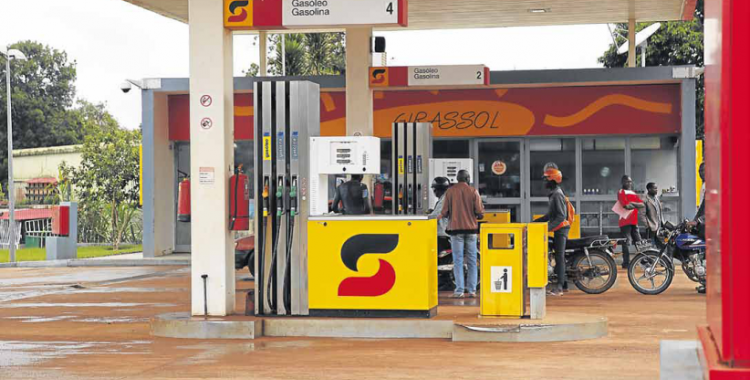Albino Ferreira, who was speaking on the sidelines of the seminar for the presentation of the National Mapping of Fuel Filling Stations and related legislation, said that fuel smuggling is a problem that afflicts the sector and the whole of society.
"The police collaborate with us in this activity and it is the body that has the most means to face contraband. It is a practice that, unfortunately, still exists, but which is being fought to the extent of our possibilities", he said.
According to Albino Ferreira, the border with neighboring countries is large and sometimes traffickers do not always use conventional routes, that is, they also use alternative routes, making it difficult to combat this phenomenon.
"But the police forces and we are also attentive and every time new ways of acting are invented, the police are also updating themselves in the fight against this phenomenon, unfortunately it is a situation that persists", he stressed.
Asked to comment on the existence of gas stations along the border, already denounced by the provincial authorities, Albino Ferreira said that "the reaction is to close them".
"But from what we know, most of the fuel that goes into smuggling even comes out of legal posts, in the dead of night. Individuals who use this practice as a source of revenue, supply more than necessary, sometimes even with adapted vehicles to supply more than what the vehicle legally has as a deposit”, he described.
The director of the IRDP added that traffickers "introduce additional deposits and then go to a certain location, transfer them to drums and put them in trucks and try to cross the border often in disguise".
Asked how much the country loses with this illegal practice, the official replied that "it is difficult to calculate, but these are numbers that really worry".
"The big problem that goes on here and that will be solved, is the question related to prices. Those practiced by us are somewhat inferior to those practiced by neighboring countries. Only this way is understood the appetite that smugglers have to take fuel Angola to trade on the other side ", he maintained.
On the question of prices, Albino Ferreira underlined that "the executive is being properly studied and very soon" the problem "can be solved so that there is a balance between national prices and those of other countries".
The Secretary of State for Petroleum, Alexandre Barroso, stressed that this is "an illegal activity", which harms the activity of the sector and the populations, noting that there are specific mechanisms for the sale of fuel in border municipalities.
"There is a regulation, a law that allows sales to be made for subsistence purposes to border populations and they are small quantities. Those large quantities that we usually see being taken to the other side of the border are illegal", he stressed.
With regard to fuel prices, Alexandre Barroso said that some mechanisms are being studied for the withdrawal of fuel subsidies, but "the idea is not to harm the most disadvantaged families".
"So we are looking for a counterpart mechanism. When this mechanism is found and fine-tuned there, the Government will make the decision", he promised.
The diversion of large quantities of fuel is regularly included in the weekly balance sheets of police actions, especially in the north of the country, reporting the impediment of trucks with oil derivatives leaving the country, mostly to the Democratic Republic of Congo.
In 2018, the then Chairman of the Board of Directors of Sonangol, Carlos Saturnino, considered fuel smuggling in Angola to be a "very serious" problem, essentially in the north of the country, adding that in the previous year they had been calculated, by sources outside the company, daily losses of around 200,000 dollars.







